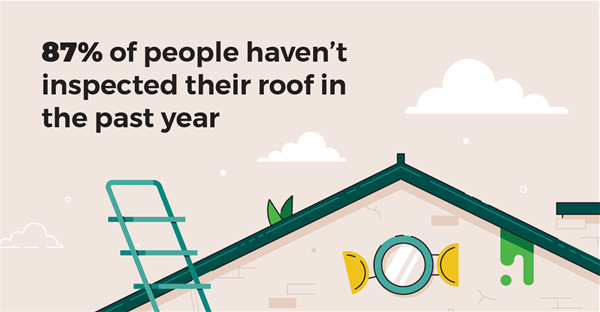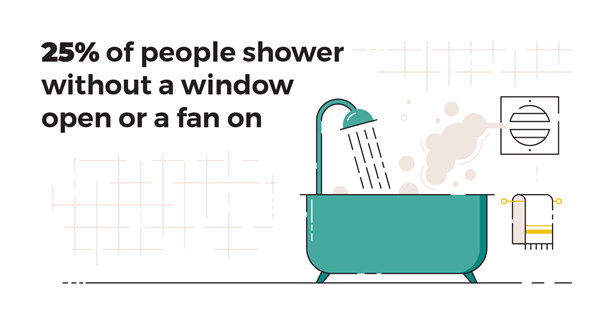Property not cared for appropriately can result in costly claims down the line. Here are some surprising statistics about the top things homeowners do and don't do that destroy their homes.
There are some basic checklist items that homeowners and landlords inspect regularly, such as security systems and smoke detectors, but the actual list of routine maintenance that should be performed is much longer.
For example, how many homeowners know that they should clean their gutters three to four times per year? And of those who are aware, how many actually do it?
As an independent agent, it’s important to be knowledgeable about the issues that arise when a property is not cared for appropriately because it could result in costly claims down the line.
Keep reading for some surprising statistics about the top things people do and don’t do that destroy their homes.
Outdoor Mistakes That Homeowners Make
More than two-thirds of Americans surveyed don’t properly maintain the exterior of their home. Remember that question about how homeowners should clean their gutters three to four times per year? Turns out, roughly 84% of Americans haven’t cleaned their gutters at all within the past year.
It’s understandable—no one enjoys cleaning gutters, but putting it off increases the risk of causing more drastic damage. A clogged gutter can lead to cracks in the roof, which are costly to repair, and, in some cases, could be irreversible.

Gutters aren’t the only outdoor maintenance that’s lacking for many Americans. In fact, 87% of people surveyed haven’t inspected their roof within the past year. While checking your roof can be a pain, missing out on the warning signs for mold, algae or warped shingles can lead to the need for extremely costly claims.
Pressure washing is another important factor in outdoor home maintenance, but only 14.5% of people surveyed pressure wash their home exterior. Many people don’t notice the buildup of grime over time, and some argue that pressure washing can cause damage to the home exterior, but pressure washing is an important step to eliminate mold and mildew growth in your home’s exterior.
Also, in the past year, only 7% of Americans surveyed checked their window seals. Many people don’t think to check their window seals, but ensuring windows are sealed can save big on heating costs and potential insect infestations.
Indoor Mistakes That Homeowners Are Making
Interior damage like mold can be difficult to spot, but 38% of Americans don’t take any precautions to avoid unwanted water damage. Particularly in areas like bathrooms, it’s easy for mold buildup to go unnoticed until it has reached a critical level.

Ventilation is an important step to prevent mold in bathrooms, but 25% of respondents reported showering without a window open or fan on. Although having a vent fan is a building code requirement for bathrooms, many Americans don’t use it to remove moisture from the air after a shower.
Additionally, 12% of Americans have reported leaving a window open while it’s raining. While there are situations like leaving a window open by accident every once in a while, it's necessary to avoid doing this, because any rain that gets indoors through a window greatly increases the likelihood of interior water damage.
Another common misconception that can lead to costly home repairs concerns putting food items down the drain. Given that 39% of people are putting food down the drain, it’s important to note that contrary to popular belief, nothing should be put down the drain. Instead, dispose of food waste in a trash can to prevent costly maintenance to clogged pipes later.
Make sure clients are insured for situations like these. Whether a homeowner is in need of a drain repair or a landlord is dealing with broken window seals in their tenant’s home, independent agents need to be well-versed in all the possible problems and solutions that could arise.
For an in-depth guide to home maintenance, check out this infographic.
Sarah Archer is a results-driven marketing manager with expertise in leading content strategy, SEO and PR across diverse industries ranging from startups to Fortune 500 companies.
